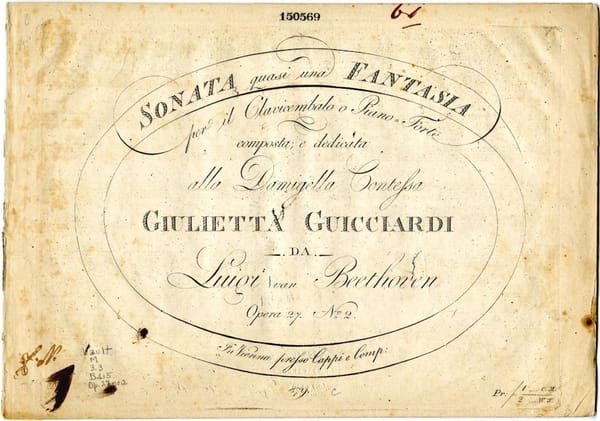Empowering Musical Futures: Lucy French and the Chennai Youth Sinfonietta
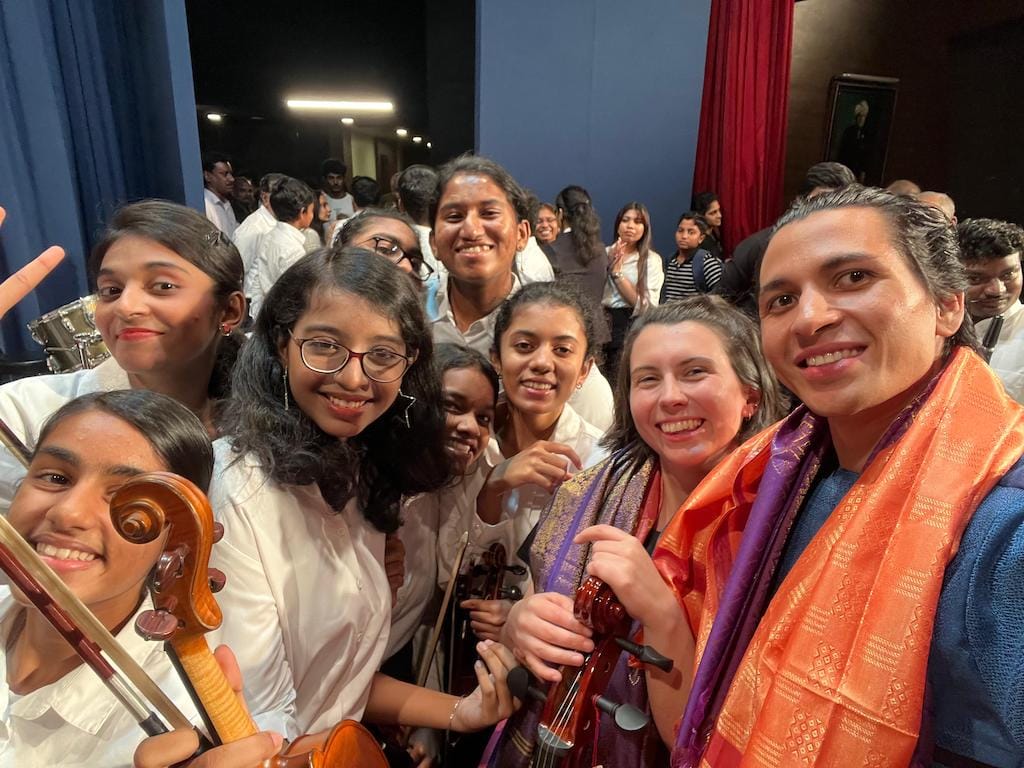
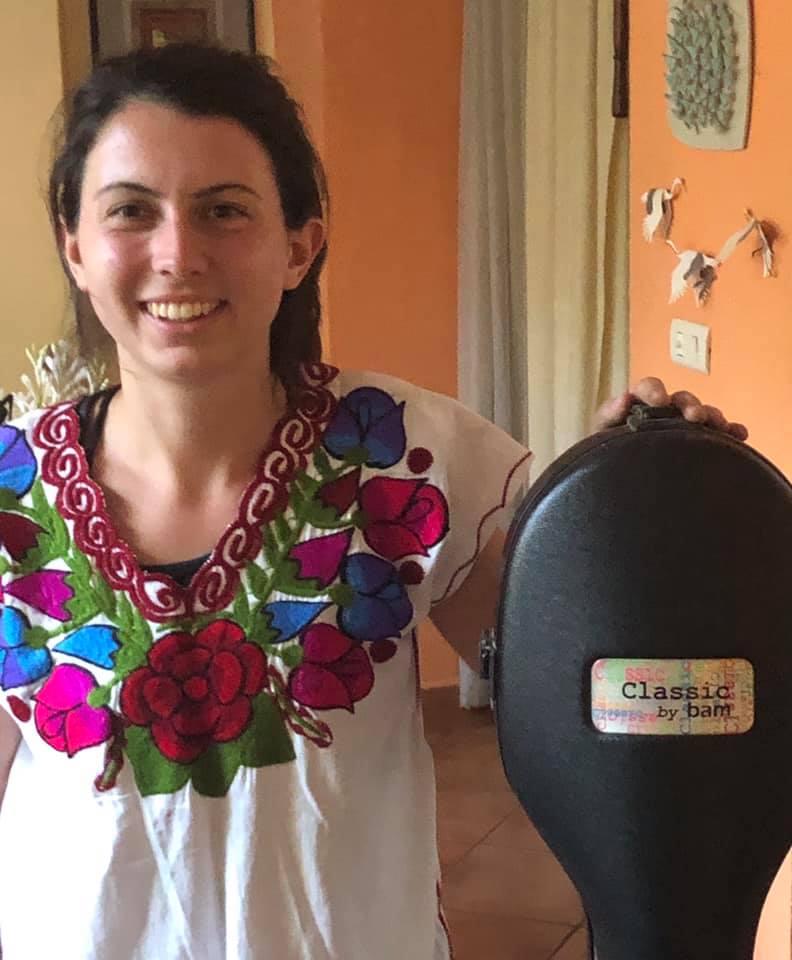
Lucy French, a versatile cellist from Leamington Spa, UK, embodies a harmonious blend of artistic brilliance and educational passion. Since earning her master’s degree from the Guildhall School of Music and Drama in London in 2017, Lucy has embarked on a dynamic journey across continents, thriving both as a contemporary performer and a committed educator. Her musical endeavors have taken her to prestigious stages, including performances with the Hofesh Shechter Dance Company and engagements with orchestras like the Chineke! Orchestra.
Not confined by traditional boundaries, Lucy’s artistic vision extends beyond conventional genres, evident in her collaborative projects and immersive art installations. As a dedicated teacher, she imparts her expertise as a cello instructor at the Escuela de Iniciación Musical ‘Santa Cecilia’ in Zaachila, Mexico, and extends her reach globally through online classes in Kinder Paradise, Pram Pram, Ghana, and Musee Musical, Chennai, India, under the auspices of Keys of Change.
In this interview, Lucy shares insights into her experiences, philosophies, and aspirations, illuminating her unwavering commitment to nurturing musical excellence and fostering inclusivity in communities worldwide.
Serenade Team: Can you share your musical background and how it aligns with the mission of fostering musical talent in diverse communities? What philosophies or principles guide your approach to teaching music, especially within a diverse and inclusive environment like Chennai Youth Sinfonietta?
Lucy French: I first became interested in community music-making during my master’s at the Guildhall School, where I was a member of the band, the Messengers. The environment of inclusivity and positivity there, where every member’s creative ideas were embraced, impacted me greatly. Additionally, teaching cello in inner-city schools in London exposed me to the diverse backgrounds of students and taught me that different kids require different approaches to succeed. I enjoy teaching when it’s a collaborative process, aiming to inspire a love for music in each child, for example, by carefully selecting pieces they can connect with.
ST: Could you describe a specific instance or project where your teaching had a transformative impact on young musicians or a community? How do you envision contributing to the goals of Chennai Youth Sinfonietta in terms of fostering community engagement and musical excellence simultaneously?
LF: I am extremely proud of a former student in Oaxaca, Mexico, who, after studying with me, is now completing his undergraduate degree at the National University of Mexico. He exemplifies the values of service and collaboration fostered by the Santa Cecilia school. Supported by the school, teachers like myself, and Panos from Keys of Change, he regularly returns during his holidays to help newer cellists in the school. I’m thrilled to see how my efforts teaching classical music to him have opened up a world of possibilities for his future. I hope to foster this sense of achievement, pride, and giving back among the young musicians in Chennai.
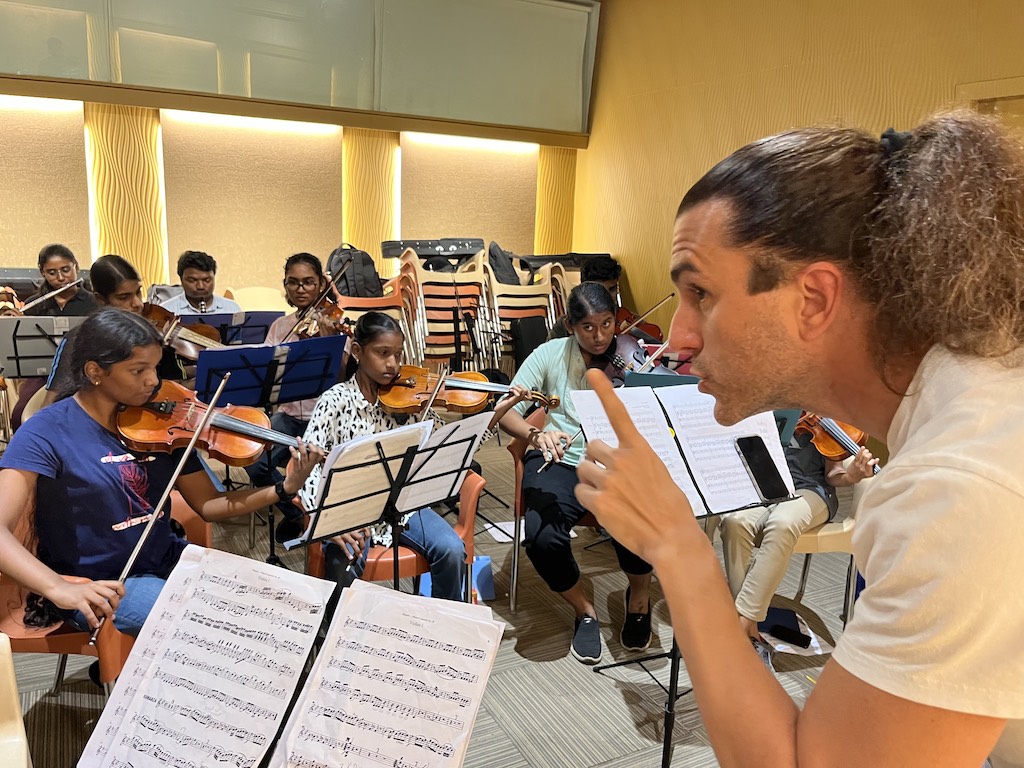
ST: What teaching methodologies or techniques do you find most effective in nurturing young musical talent, considering the diverse backgrounds of the students? How do you plan to integrate your diverse experiences into the educational framework of Chennai Youth Sinfonietta?
LF: Approaching each student as an individual helps build their identity as a musical practitioner and artist. I seek out repertoire that engages and interests students, often asking for their song recommendations. Playing together also enhances enjoyment in rehearsing and practicing, so I often encourage students to study duets, involving a friend from the orchestra. While arranging these pieces, I incorporate the techniques they are currently developing.
ST: Given the emphasis on collaboration and mentorship, could you discuss your approach to collaborating with other faculty members and mentoring young musicians? How do you perceive the role of mentorship in shaping the next generation of musicians, and how would you contribute to this at CYS?
LF: I am fortunate to have incredible colleagues through Keys of Change who also support CYS. I am constantly learning from experiences of colleagues like Pedro, Efrén, and Moisés, who all have deep knowledge of youth music programs, having been educated in ‘El Sistema’. It’s enriching that our cello student at CYS benefits from two distinct music training backgrounds, and we collaboratively support her progress. She began learning the cello in August and performed remarkably in the December concert, which is unprecedented for a total beginner. This success demonstrates the effectiveness of open communication and collaboration in music teaching. I aim to embody and explain these ideals to the students at CYS.
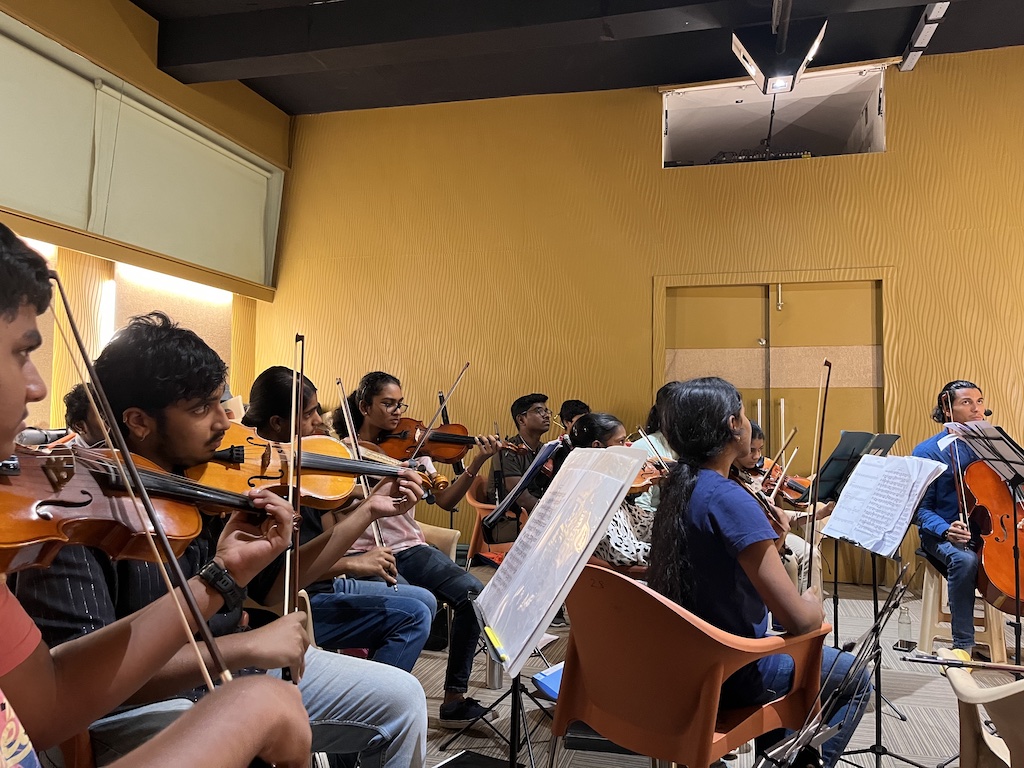
ST: How do you believe music education contributes to societal change, especially in promoting inclusivity and harmony, and how can CYS further this impact? Can you share any initiatives or experiences where music education was used as a tool for positive social change, aligning with the vision of CYS?
LF: Music education plays a vital role in fostering change. I’ve witnessed this firsthand in La Vicente, Oaxaca, Mexico, where the music school is integral to the community’s safety and improvement. Children have the opportunity to practice and perform together, promoting friendship, cooperation, and respect, which strengthen community ties. As CYS expands and involves more children from different communities, there’s immense potential to create these ties in Chennai. Each child brings something unique to the project, and by providing a platform for their talents to shine, CYS can become a significant force for good in the wider Chennai community.


